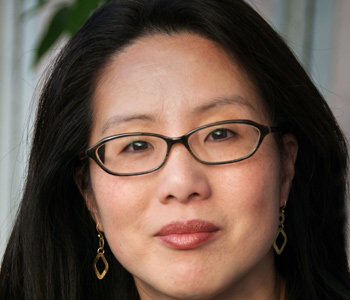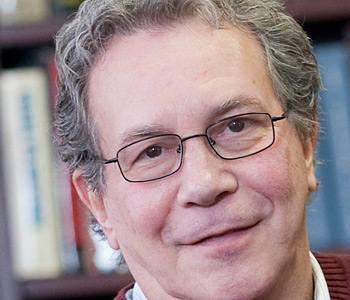Nicholas D. Paige
Before Fiction: The Ancien Regime of the Novel
University of Pennsylvania Press
304 pages, 6 x 9 inches
ISBN 978 0812243550
On the face of it, my title is silly: there is no “before fiction” for humans, for we are, from the start of recorded history and from the start of our individual lives, fiction-loving animals. Homer, say, on the one hand; and pretty much any toddler on the other. It’s for good reason that “fiction” has become the de facto, lowest-common-denominator way of referring to vastly different products of human storytelling. Besides: long ago Aristotle cleanly separated history from poetry—“what happened” from “what would happen.” Whether we are talking about human history or literary history, surely fiction runs through the lot of it.
But there are other ways of looking at the matter, depending on what you want to explain. I want to explain a predominant feature of the early novel in France and England—“early” meaning the period of what is usually known as the genre’s rise, from the late seventeenth to the late eighteenth centuries. Readers of the period’s classics—Robinson Crusoe, Clarissa, Dangerous Liaisons—will recognize the feature: it’s the way these novels pretended to be real documents. They usually didn’t pretend very hard: bona-fide hoaxes were rare. But they didn’t advertise their fictionality, in contradistinction to most novels of the following century. Emma Woodhouse, Emma Bovary: their creators never for one moment assert their stories as literally true. Looking back, the early novel’s insistence on its own literal reality is hard to comprehend. Why even bother, especially when that insistence was so often ironic and half-hearted? Why didn’t these writers just invent as matter-of-factly as we do?
Good questions, though I can well imagine the ghosts of Richardson and Laclos asking today’s writers: How can it possibly be of no concern to you that your characters never existed? Because if we look at Western literary history, it’s the modern position that stands out. Even Aristotle’s Poetics argues pretty clearly that the best subject of literature is historically attested people engaged in historically attested events. And for many centuries, historical subject matter remained at the core of most literature of any ambition. Writers took attested heroes and events and crafted good plots, using what was known and inventing whatever was necessary.
Should we count as fiction this particular configuration of the relation between invention and history? Are novels that ironically pretend to be real collections of letters, or memoirs, fiction, too? It obviously depends on how one defines the term. I’ve chosen—partially for reasons of maximum clarity, partially for polemical thrust—to talk about three distinct regimes of literary invention. The first I call Aristotelian: in order to make a good plot the poet adds what he needs to what’s known about this-or-that hero. The second, for which I’ve borrowed the term “pseudofactual,” describes the eighteenth-century novel: writers pretend to offer readers real documents about otherwise unknown people. The third regime is fiction, and it allows writers to propose novels as models of reality without advancing their protagonists as historically real.
This isn’t the first book to make fictionality the primary variable in the history of the novel, though it does depart pretty radically from earlier attempts. That departure was unplanned. At the outset, I was planning to do for the French novel what a few scholars had already done for the English. The enshrined narrative of the novel’s rise had it marching steadily from the ideal to the real: it starts out fanciful, and slowly turns toward reality, inventing new ways of better representing psychology, of anchoring human existence in its full material context. (This is why Don Quixote is always seen—quite wrongly, I think—as a kind of shorthand for the history of the novel as such.) What a few critics starting in the 1980s did was turn this narrative on its head, arguing that the novel moves from being a kind of ersatz history to a final recognition that it is a privileged in-between space—neither a lie nor literal truth, but the certain supple something we call fiction.
Initially, then, I wanted to do more or less the same for France. And so I picked a series of mostly canonical works from the early French tradition that seemed to bear witness to an evolving concept of fiction: Lafayette’s The Princess de Clèves (often advanced as the first truly psychological novel), Rousseau’s huge best-seller Julie (a kind of re-write and critique of Clarissa), Diderot’s The Nun (for which he developed a maddeningly playful postface that has long obsessed critics), and a few more.
Yet I quickly ran into trouble. My starting point was The Princess de Clèves, from 1678—a book that quite unabashedly flaunts its invented protagonist, whereas Diderot and Rousseau, writing almost a century later, are cagy about the existence of their heroines. How could I go about arguing that fiction was rising if my earliest example was prematurely risen?
The upshot was that I had to rethink what these examples were really examples of. Historians of the English novel had lined up Defoe, Richardson, and Fielding, arguing that they were slowly freeing the novel from a slavishly factual posture. Isolated works, it follows, are signs of something else behind or outside of them, designated as “the concept of fiction”; the careful reader can see that concept—which the writers themselves only intuit—peeking through the work. Unfortunately, this is magical thinking. We have created an all-powerful, invisible entity to which we ascribe causative power in the manifest world.
In the end, I realized that all I had was a bunch of idiosyncratic novels. The later ones didn’t build on the former; the earlier ones didn’t anticipate some truth that we all now see clearly. I think the novelists I deal with were brilliant: they produced works that played in very different ways with the guiding assumption of the time, which was that good literature should be about real people. But they didn’t change anything; they didn’t bring into being the regime of fiction.
No question, the best way to dip into Before Fiction is by skipping the short Preface and getting right to the Introduction. That’s where I lay out and illustrate my big-picture narrative—those three regimes of literary invention I call the Aristotelian, the pseudofactual, and the fictional.
In some sense this introduction is really a separate study in its own right: it doesn’t so much miniaturize the argument of the rest of the book as provide a prolegomenon for the individual studies. In other words, the chapters don’t flesh out contentions I make schematically in the Introduction; rather, the Introduction provides the context against which the intricacies of the individual works make sense. I’ll just assume that most people are interested in the big picture, especially since it ranges freely between England and France (and back to ancient Greece), whereas the works I treat in depth are all French.
The individual novelists I analyze don’t lead from one to the next, I’ve said; and so while there’s a certain (mostly chronological) logic to the ordering of the chapters, readers wanting more than the big picture can pick and choose from the case studies in accordance with their interests.
One of the most popular accounts of the modern novel sees it springing from Don Quixote, the book that (it is said) destroys primitive romance. Readers wondering how my history deals with Cervantes can dig into the only chapter treating a forgotten novelist, a writer who tried to update the Quixote in 1670.
Others may recall a famous essay by the historian Robert Darnton that argued that readers of Rousseau’s Julie were so naïve as to believe that the epistolary novel was composed of real letters. My chapter on Rousseau aims to lay this canard to rest and to show why positing fiction as a late development doesn’t at all commit us to seeing earlier readers as somehow congenitally daft or conceptually short-changed.
Fans of the supernatural may want to read the chapter on a short novel often advanced as the first example of the fantastic—a genre that tries to shake momentarily the reader’s confidence in reason and the laws of nature. It’s also a genre that, on reflection, seems the perfect embodiment of fiction itself, since it’s bent on seeming real despite the reader’s knowledge that it can’t be. And indeed, Cazotte’s The Devil in Love (1772) is fiction. But I show that this fictional status is rather accidental, and doesn’t in any way hasten the coming of the fictional regime.
Such is the case with all the works I look at. If we know—as we do—that fiction’s coming, it’s hard not to look at earlier works that play with their own truth status as harbingers. But they’re not. They buck the system. They don’t change it.
Failed hypotheses are a normal part of scientific research—you test a hypothesis, it doesn’t work, you come up with something better. But literary scholars don’t usually design their projects like that. I certainly didn’t: I borrowed a narrative (the rise of the fictional novel), lined up some cases I thought would support it, and hoped for some new insights along the way. In the end, however, I couldn’t make my texts fit the narrative, and so I came up with something that seemed much more plausible—the idea of the three regimes. Unfortunately, this new narrative, by its very nature, was no longer of a sort that could be supported by the very texts that had suggested it. I had spent many years writing about works that no longer added up to anything. The book’s chapters are really orphans.
But I’m not sad about that, because I think that the book points forward, toward new ways of studying the evolution of the novel.
I very much second the initiative of Franco Moretti, who has been arguing tirelessly that close reading of a few classics will never tell us anything about larger generic systems that come and go. And he points out how much of the literary record is terra incognita: “All literary scholars analyze stylistic structures—free indirect style, the stream of consciousness, melodramatic excess, whatever. But it’s striking how little we actually know about the genesis of these forms. Once they’re there, we know what to do; but how did they get there in the first place? Concretely: what are the steps? No one really knows.”
When he says that we know what to do, he means that we’re ready to rush in with interpretations. If you want to know why Austen or Flaubert used free indirect style, you have your pick of clever explanations. But if you want to know how free indirect style might have arisen or spread outside or between such figures, you’re pretty much out of luck.
According to my narrative, pseudofactual pretense gave way around 1800 to fictionality. But how do I know this, given my refusal to read such a shift in individual works? I don’t: it’s a hypothesis derived from a number of different coordinates. The real testing remains to be done, and it lies in a serious historical inventory of novelistic forms and devices. We have good figures on the rise and fall of the epistolary novel, for example; but we know rather less about, say, the frequency with which the form is presented as true. Likewise, we don’t know much about the spread of third-person forms of narration that dominate the nineteenth century—forms that don’t have the pretence of truth built into them, as it were. Think of such forms and devices as technologies: people invent and perfect them to do things, later dropping or supplementing them with alternate technologies. That’s what I think we need: a history of the novel’s many succeeding and competing technologies.




We don't put paywalls. We don't distract you with ads. We don't sell your data.
Please help to keep this running!